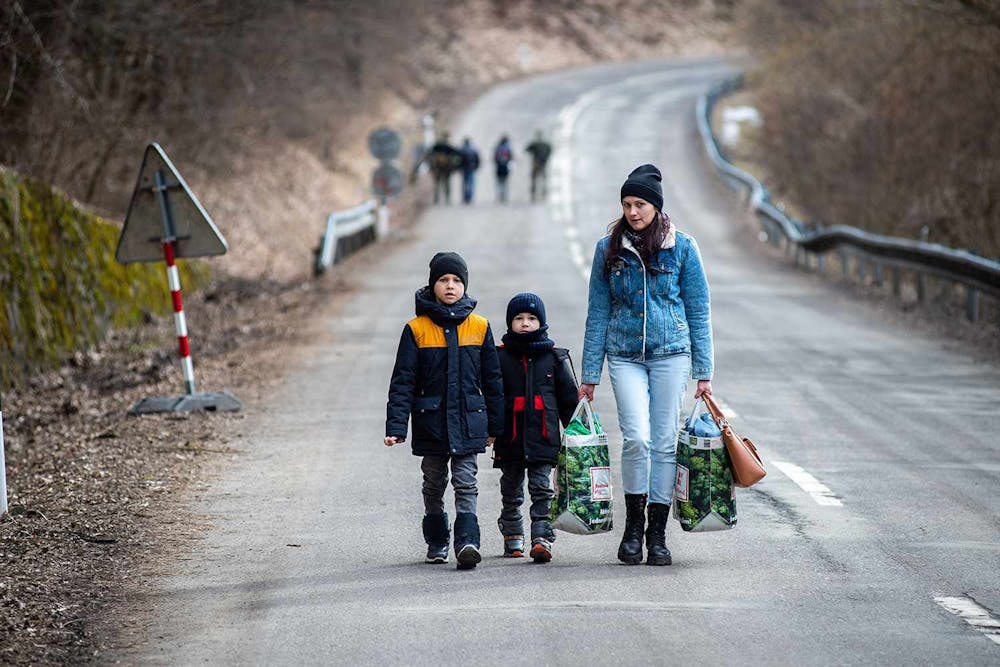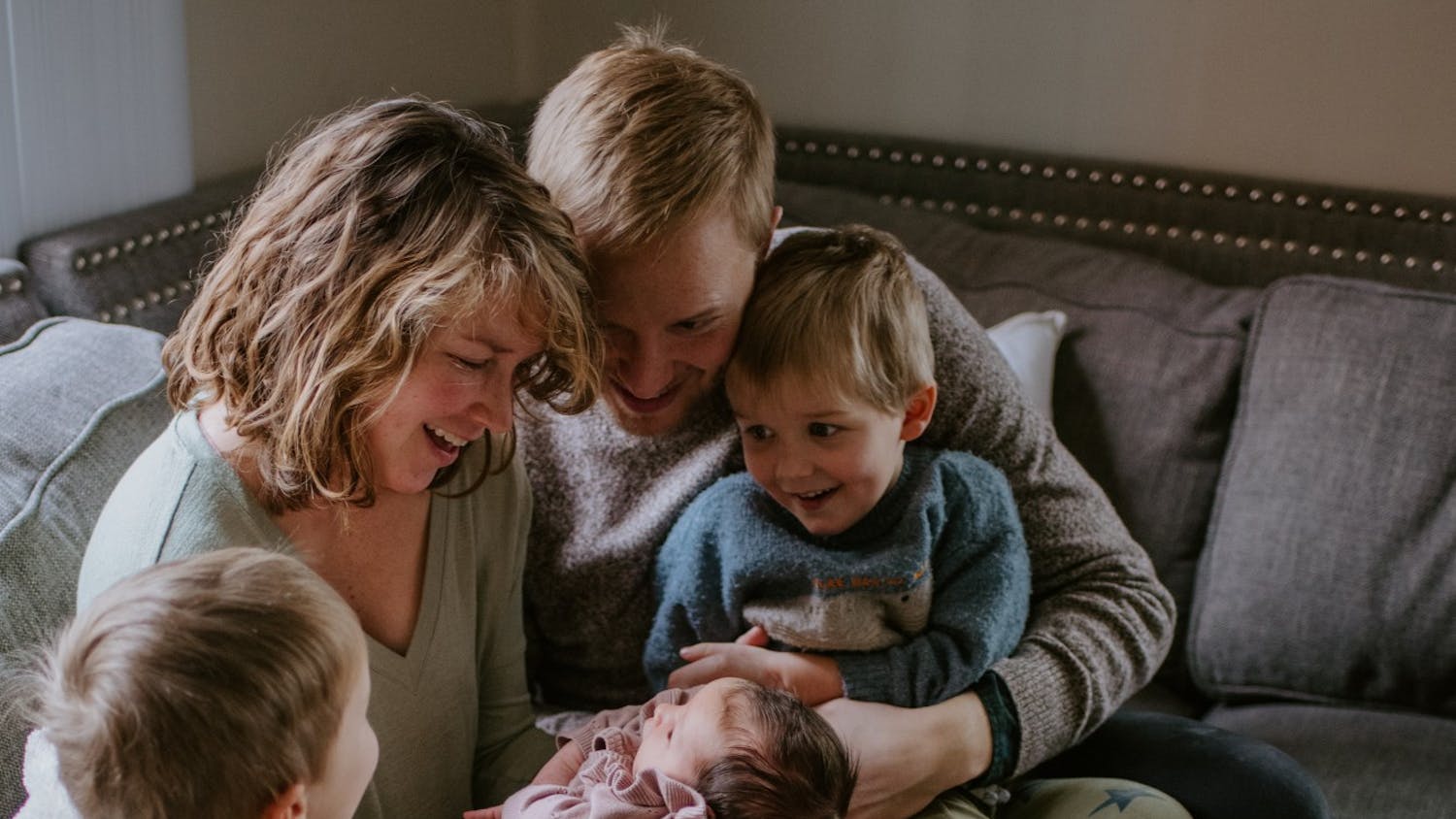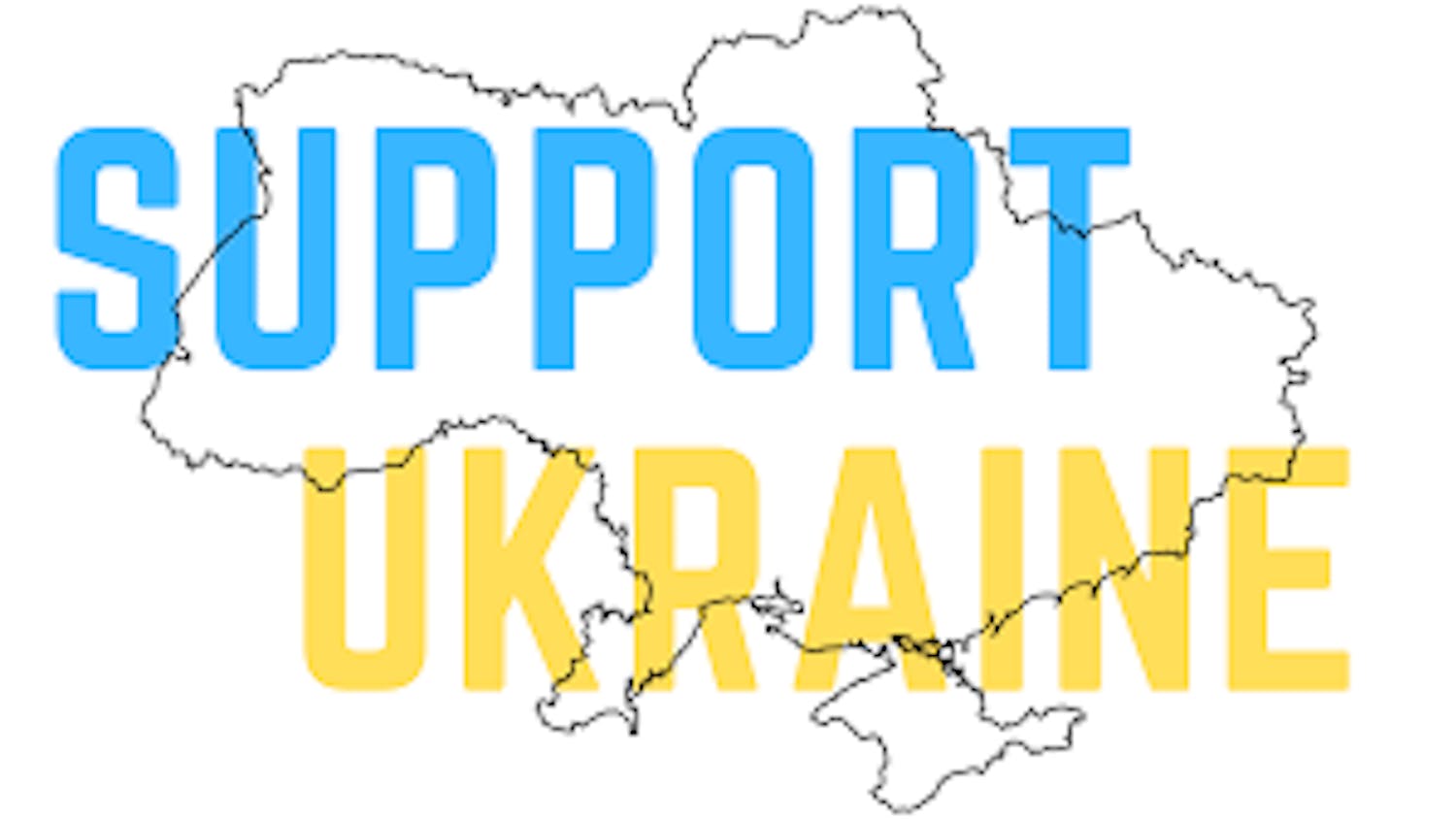All quotations in this story are translated from Russian into English by the writer - Editor
As the war in Ukraine continues, big numbers are thrown around — hundreds dead, thousands fled, millions spent. But numbers don’t have faces. While hearing all of these facts increase awareness of the conflict, the war in Russia-Ukraine remains an impersonal, distant event for those in North America.
Many forget that this event has faces scattered across the globe as refugees seek a different place to live — away from the missiles and power outages and fighting.
Volodimer is one example.
Several months ago, he moved with his wife and cat to live with their daughter in Michigan — the first place he has been able to settle long-term since leaving his home city of Kharkiv, Ukraine in March.
Volodimer was determined to stay home when the fighting started. During the initial stages of the war, with rockets flying over and hitting the airport and train station, everyone in the apartment building hid in the basement all night.
After a night of around 45℉, he and his wife decided it wasn’t worth staying in the basement. The elevator didn’t work and many of the other residents also didn’t think descending the flights of stairs was worth it. From then on, if there was shooting, they just sat it out inside.
One of the first things Russian forces did was target critical infrastructure like airports. Volodimer remembered that no one could fly in or out.
“And by the second or third day they got to Kharkov — from Russia to Kharkov is more than 50 km.,” Volodimer said. “I thought that probably they would take Kharkov.”
The young Ukrainian troops proved that they could fight. Russian troops got to the center of Kharkov and thought they would be greeted with flowers — instead, they were pushed back by Ukrainian soldiers.
Russian forces advanced to within 10 kilometers of Volodimer’s apartment. Half of the residents were gone, leaving for safer areas of Ukraine or exiting the country entirely. Males ages 18-60 were not allowed to leave the country unless they had a health problem, were the father of four or more children or had another valid reason.
As Volodimer realized when he went to his job after the fighting started, jobs that were not absolutely necessary stopped. Most stayed home or waited in line at aid stations to get food.
One of Volodimer’s friends called from Poland, where he had fled, and told Volodimer how great it was — free food and free train tickets from the welcoming Polish. But still Volodimer did not want to leave his home.
Early March, as Volodimer was waiting in line for food from a relief line, he turned and saw a missile sticking out of the ground very close by. Volodimer ran inside.
“My wife said, ‘Let’s go, everyone is leaving, we are staying, let's go,’” Volodimir said.
They left on March 8 when Russia happened to hold a ceasefire to celebrate International Women's Day. Volodimer and his wife packed up their car with their luggage and cat and drove through wrecked cars in the streets over the last open bridge out of their city.
Finally, they made it to the border and into Poland. Volodimer said he felt awkward being among so many displaced families.
“Refugees have to go with one suitcase but we had [more],” Volodimer said. “And on the train or on the bus [is how refugees travel], but we went there [in our car]. I thought, where do we put the car? The cat?”
Others had different stories of getting out of the country. Anya had been considering leaving Ukraine for a while. Her husband was dead and her grown up sons were living in Poland and Germany. When her son in Poland got sick the second day of the fighting, Anya took it as a sign to leave and set off to take care of him.
First, she had to cross the border.
Anya drove five hours with a group of people to get to the border — when they arrived, there was a traffic jam for 30 kilometers. Waiting in the car for one and a half days only got them forward one kilometer, so they decided to walk.
She remembers leaving at 6:30 in the morning with the kids and a few possessions and walking, although they were very tired and it was a long way. Once across the border, she rode a train for 13 hours to reach her son in Poland.
“And the second day when I had rested some, my feet really hurt and I looked to see: why do my feet hurt? And I had frozen my toes,” Anya said. “I put some cream on them and the pain went away. Praise God nothing happened; they are just black.”
After a few weeks, her son had recovered enough to return to his air duct installation job and Anya was left looking for what was next. Through the process, she looked for God’s guidance and attributed the work she found to Him. Although she knew very little Polish, her coworkers were old enough to know Russian from living in the Soviet Union. Through her hard work and conversations, Anya was able to be a Christian witness to them.
Getting across the border gave Anya a few months’ break — but for Volodimer, it was just the beginning.
His daughter in the U.S. was able to find them a place to stay in Spain that was owned by someone living in Great Britain. This meant driving through four countries in three days, which included getting lost, hitting a deer and driving down the autobahn— the German freeway with no speed limit. Finally, they arrived at the seven-bedroom mansion on the coast of Spain, where they were invited to stay for a month. Volodimer hoped the war would be over by mid-April.
But the war was not over in a month.
Around that time, Biden opened up the U.S. to some immigrants at the Mexican border and Volodimer’s daughter said they could join her in America, where she would meet them at the border.
This began the next saga of their travels: which included flying back and forth to Mexico and discovering their cat needed vaccinations and a passport.
Renat was just under the age limit of 18 when the fighting started, so he was able to leave Ukraine with both his parents and his four younger siblings. Being with his family didn’t mean that adjusting to life in Poland was easy.
School is all in Polish, which means learning a new language. He made friends with Ukrainian teenagers at the church he attends — which is not the same church that the rest of his family attends — but to see his friends and go to church usually means a 40-minute bike ride.
Poland has tried to welcome Ukranians and help them settle in, but that does not change how unusual the situation is.
Being abroad as he is nearing the end of high school doesn’t make the situation any easier.
“Of course I have plans for the future,” Renat said. “I just remember that not long ago I had plans, then literally in one month I was already in Poland — so I don’t know what will happen next. I can make plans, but I don’t know what will happen next.”
These are just a few out of the millions of the stories that can be told. Some families left the country together. Others left a father or sons or grandparents behind.
There may be chances for Americans across the country to get to know some of the stories by meeting refugees personally. Ukrainian families scattered across the globe, and many are in the U.S.
Getting in contact with Ukrainians and other refugees can be a chance to hear their stories and to welcome them to their new home. There may be Ukrainians locally that can be helped with material daily needs, or even just from in a supportive community. Prayer is also helpful for the nations in conflict and the millions of displaced citizens.
The interviews for this story were conducted in late summer 2022, and situations have changed for some of the individuals.
Renat is finishing up his last year of school in Poland.
A little over a month ago, Anya recently moved to the U.S. with two of her sons and has found a Russian-speaking church that she enjoys.
For at least the next two months Volodimer is living in the U.S. watching his grandchildren grow up. Soon his wife’s registration will expire and he will have to decide what is next.



![Sinai Camel picture[34].JPG](https://snworksceo.imgix.net/etu/20f794c9-face-4d78-b628-4523824a112f.sized-1000x1000.JPG?w=1500&ar=16%3A9&fit=crop&crop=faces&facepad=3&auto=format)

